
Newsletters
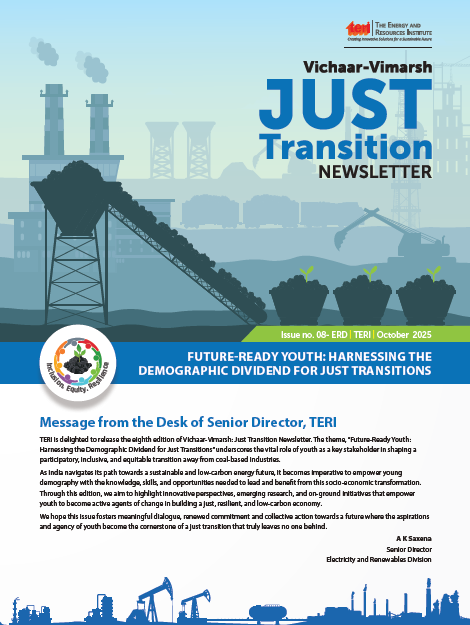
Nov 21, 2025
FUTURE-READY YOUTH: HARNESSING THE DEMOGRAPHIC DIVIDEND FOR JUST TRANSITIONS
Nov 21, 2025
FUTURE-READY YOUTH: HARNESSING THE DEMOGRAPHIC DIVIDEND FOR JUST TRANSITIONS
The eighth edition of Vichaar-Vimarsh: Just Transition Newsletter, themed “Future-Ready Youth: Harnessing the Demographic Dividend for Just Transitions” underscores the vital role of youth as a key stakeholder in shaping a participatory, inclusive, and equitable transition away from coal-based industries. As India navigates its path towards a sustainable and low-carbon energy future, it becomes imperative to empower young de...
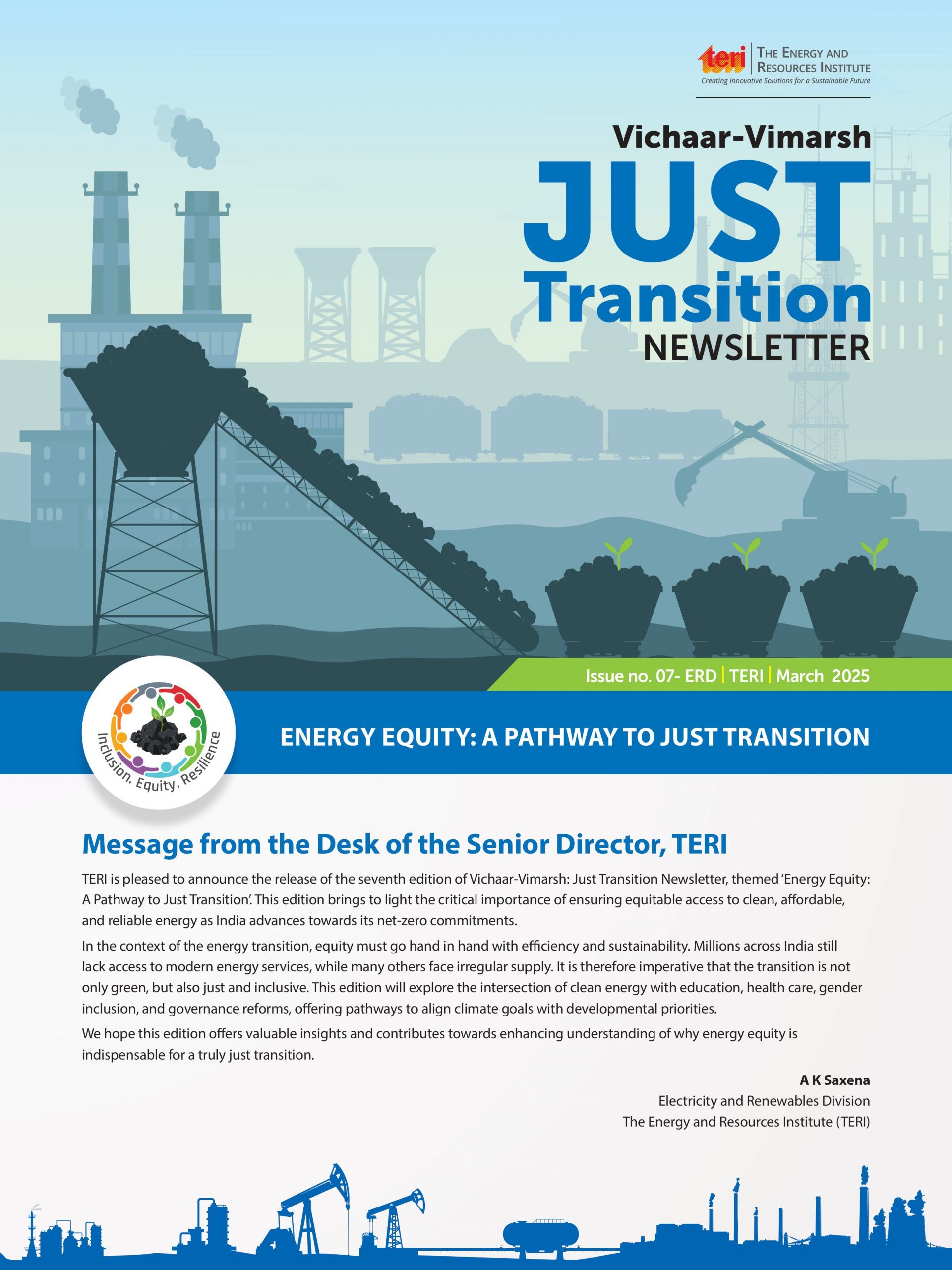
May 08, 2025
ENERGY EQUITY: A PATHWAY TO JUST TRANSITION
May 08, 2025
ENERGY EQUITY: A PATHWAY TO JUST TRANSITION
The seventh edition of Vichaar-Vimarsh, TERI’s bi-annual newsletter on just transition, focuses on the critical theme of energy equity. As India advances on its net-zero pathway, ensuring clean, affordable, and reliable energy access for all remains a key challenge and opportunity. This issue highlights how equitable energy access intersects with gender inclusion, public services like education and healt...
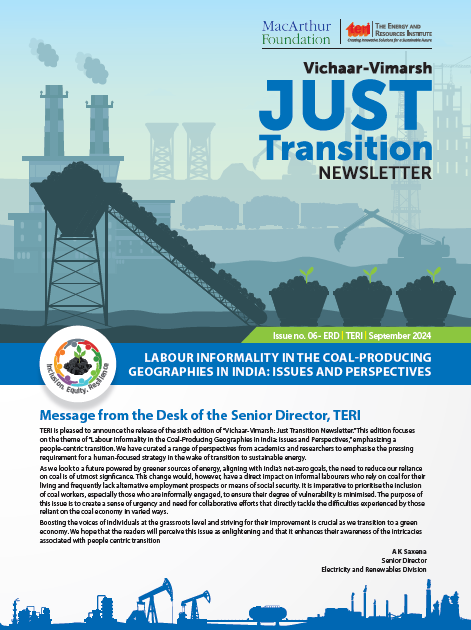
Sep 03, 2024
LABOUR INFORMALITY IN THE COAL PRODUCING GEOGRAPHIES IN INDIA: ISSUES AND PERSPECTIVES
Sep 03, 2024
LABOUR INFORMALITY IN THE COAL PRODUCING GEOGRAPHIES IN INDIA: ISSUES AND PERSPECTIVES
This edition focuses on the theme of “Labour Informality in the Coal-Producing Geographies in India: Issues and Perspectives,” emphasizing a people-centric transition. We have curated a range of perspectives from academics and researchers to emphasise the pressing requirement for a human-focused strategy in the wake of transition to sustainable energy. As we look to a future powered by greener sources of energy, aligning with India’s net-z...
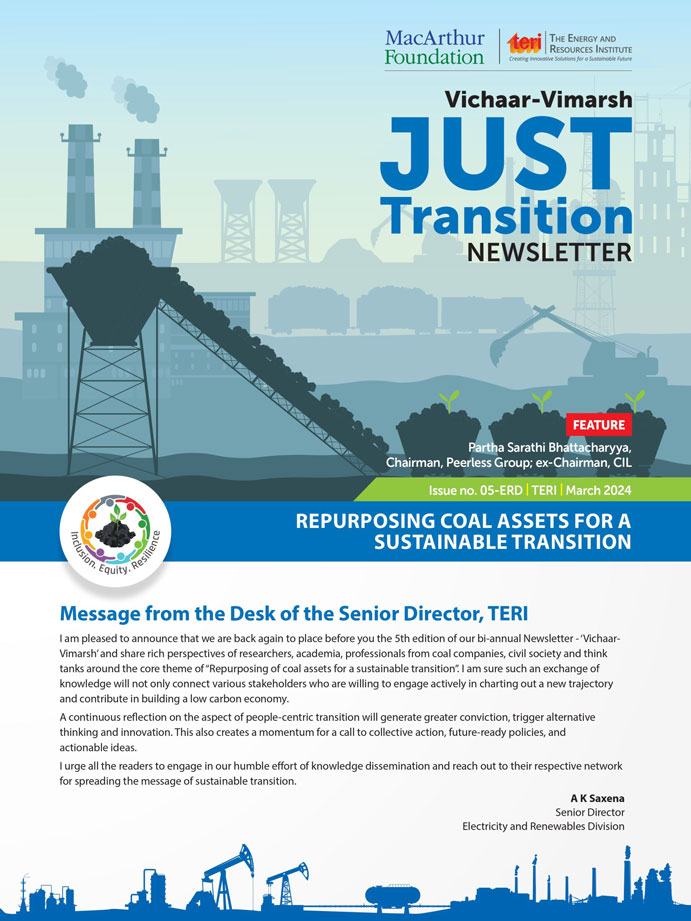
Mar 18, 2024
REPURPOSING COAL ASSETS FOR A SUSTAINABLE TRANSITION
Mar 18, 2024
REPURPOSING COAL ASSETS FOR A SUSTAINABLE TRANSITION
I am pleased to announce that we are back again to place before you the 5th edition of our bi-annual Newsletter - ‘Vichaar Vimarsh’ and share rich perspectives of researchers, academia, professionals from coal companies, civil society and think tanks around the core theme of “Repurposing of coal assets for a sustainable transition”. I am sure such an exchange of knowledge will not only connect various stakeholders who are willing to en...

Sep 18, 2023
ENHANCING STAKEHOLDER ENGAGEMENT FOR A JUST ENERGY TRANSITION
Sep 18, 2023
ENHANCING STAKEHOLDER ENGAGEMENT FOR A JUST ENERGY TRANSITION
On behalf of TERI, I take this opportunity to thank the researchers, practitioners, academia and civil society for their contributions to the newsletter. I am happy to inform them that the encouraging feedback we have received so far has resulted in promoting mutual learning and developing a diversified knowledge pool. TERI is happy to facilitate this discourse, broaden the engagement and deepen the understanding on the subject through this co...

Mar 18, 2023
DIVERSIFICATION OF ECONOMIC CHOICES IN THE COAL BELT
Mar 18, 2023
DIVERSIFICATION OF ECONOMIC CHOICES IN THE COAL BELT
We are glad to bring out the 3rd Issue of our Just Transition Newsletter – ‘Vichaar-Vimarsh’. This Issue primarily focuses on alternative livelihoods in coal belts, economic diversification, complexities and opportunities. ‘Vichaar-Vimarsh’ attempts to bring together various thoughts and voices from the academia, practitioners, thought leaders, businesses and researchers. Apart from conceptual writing and evidence sharing, what is un...
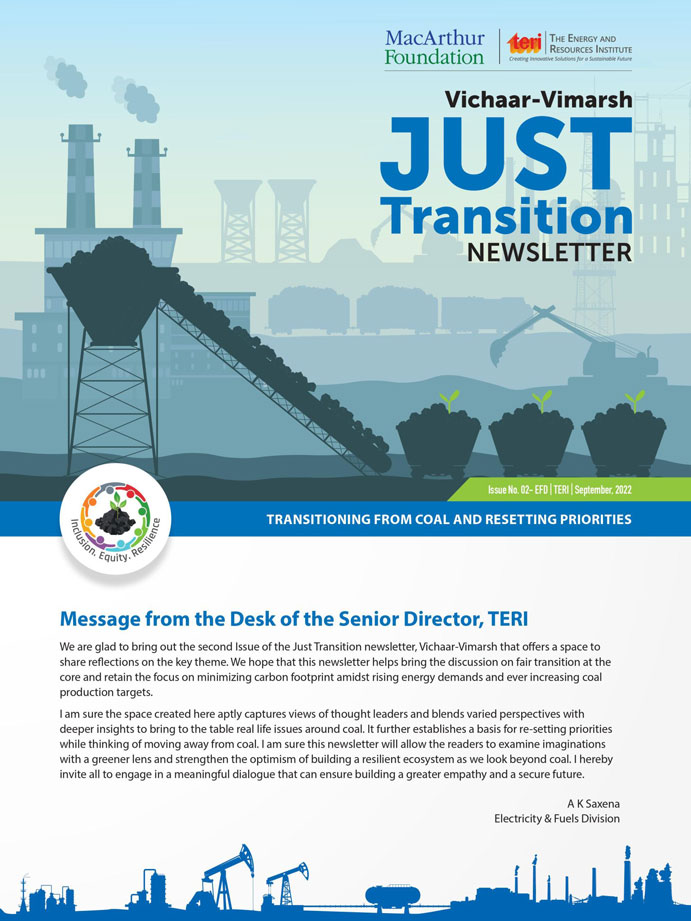
Sep 12, 2022
TRANSITIONING FROM COAL AND RESETTING PRIORITIES
Sep 12, 2022
TRANSITIONING FROM COAL AND RESETTING PRIORITIES
We are glad to bring out the second Issue of the Just Transition newsletter, Vichaar-Vimarsh that offers a space to share reflections on the key theme. We hope that this newsletter helps bring the discussion on fair transition at the core and retain the focus on minimizing carbon footprint amidst rising energy demands and ever increasing coal production targets....
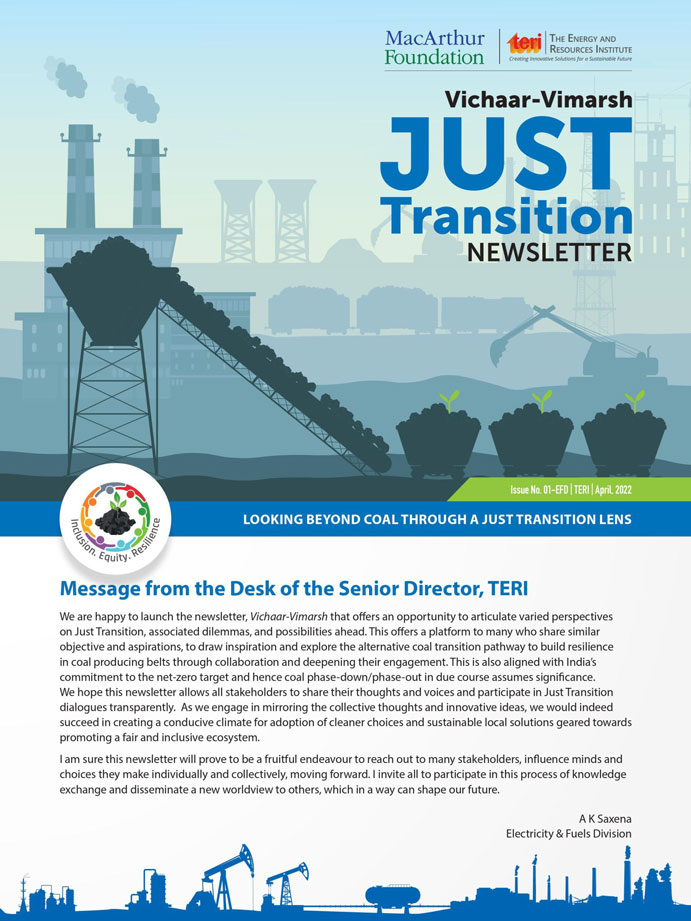
Apr 15, 2022
Looking beyond coal through a just transition lens
Apr 15, 2022
Looking beyond coal through a just transition lens
We are happy to launch the newsletter, Vichaar-Vimarsh that offers an opportunity to articulate varied perspectives on Just Transition, associated dilemmas, and possibilities ahead. This offers a platform to many who share similar objective and aspirations, to draw inspiration and explore the alternative coal transition pathway to build resilience in coal producing belts through collaboration and deepening their engagement. This is also aligned w...
